In this article, I’m going to teach you what helps with opiate withdrawal. I’ve been researching and blogging about opiate withdrawal remedies for three and a half years now, and as a result, I’ve learned some really cool stuff!
As of today, I’ve found more than 60 opiate withdrawal remedies, which fall into the categories of prescription medications, over-the-counter medications, natural drugs, supplements, nootropics, natural remedies, and home remedies for opiate withdrawal.
The focus of this piece is to inform you about what helps with opiate withdrawal the most.
Table of Contents
- 1 What Helps With Opiate Withdrawal?
- 2 1. Methadone is What Helps with Opiate Withdrawal
- 3 2. Buprenorphine is What Helps with Opiate Withdrawal
- 4 3. Gabapentin is What Helps with Opiate Withdrawal
- 5 4. Pregabalin is What Helps with Opiate Withdrawal
- 6 5. Loperamide is What Helps with Opiate Withdrawal
- 7 6. Clonidine is What Helps with Opiate Withdrawal
- 8 7. Benzos are What Help with Opiate Withdrawal
- 9 8. DXM is What Helps with Opiate Withdrawal
- 10 What Helps with Opiate Withdrawal? – Final Thoughts
What Helps With Opiate Withdrawal?
Whenever someone asks me what helps with opiate withdrawal, my first recommendations are certain medications or an herb called kratom, as these are what help the most.
However, since kratom might become illegal soon or at least one day, I want to concentrate in this article on medications that help with opiate withdrawal.
In the section that will follow, I’ll provide a brief overview on each opiate withdrawal medicine’s mechanism of action and benefits, and if you want to learn more detailed information (such as recommended dosages) you can click on the links provided to read entire articles dedicated to the things you’re interested in.
Now that you’re aware of the framework of this article, let’s dive right in and start learning about What Helps With Opiate Withdrawal – The Top 8 Things THAT HELP.
1. Methadone is What Helps with Opiate Withdrawal
Methadone is one of the only prescription opiate withdrawal medications that can totally eliminate 100% of your opiate withdrawal symptoms. This is because methadone is a powerful opioid drug.
Methadone binds to the same opioid receptors in the brain and other parts of the body that drugs like heroin, oxycodone, hydrocodone, morphine, and other opioids bind to. Once methadone binds to these receptors, the opioid effects come on.
Common effects of methadone are the same as other opioids:
- Pain Relief
- Sedation
- Euphoria
- CNS Depression
- Constricted Pupils
- Constipation
After an individual takes a dose of methadone, the drug quickly binds to the opioid receptors, and if enough is taken, withdrawal symptoms and opiate cravings are completely eliminated.
Many people that want to get off opiates without withdrawal enroll in methadone treatment facilities, which are outpatient programs that are commonly referred to as “methadone clinics.” Click here to learn more about this medicine that helps with opiate withdrawal.
2. Buprenorphine is What Helps with Opiate Withdrawal
Approved by the FDA in 2002, buprenorphine has since become one of the favorite opiate withdrawal medications among individuals that are addicted to opiates. Buprenorphine, sold under the mono-drug brand name Subutex, and under the combination-drug buprenorphine/naloxone (brand names Suboxone or Zubsolv), works in the same way that methadone does, only not as strongly.
Buprenorphine, like methadone, attaches and binds to the same opioid receptors in the brain and other parts of the body that drugs like heroin, oxycodone, hydrocodone, morphine, and other opioids bind to. Once it attaches to these receptors, it mimics the effects that opioid drugs produce (though it’s not as powerful).
For this reason, buprenorphine is referred to as a “partial opioid agonist.”
The other opiate drugs I just mentioned are known as “full opioid agonists,” because they activate the receptors in a stronger and more complete way than buprenorphine. See the illustration below.
Buprenorphine is one of the most widely-prescribed opiate withdrawal medications, and many people decide to continue taking buprenorphine as a long-term Opiate Replacement Medication to prevent cravings and opiate-relapse.
Click here to learn more about this effective treatment option that really helps with opiate withdrawal.
3. Gabapentin is What Helps with Opiate Withdrawal
If you really want to know what helps with opiate withdrawal, look no further. Gabapentin, sold under the brand names Neurontin among others, is a prescription medication that can ultimately prevent you from experiencing opiate withdrawal symptoms, so long as you take the right dosage.
Gabapentin is commonly prescribed for the treatment of:
- Epilepsy
- Neuropathic Pain
- Hot Flashes
- Restless Leg Syndrome
Gabapentin was designed by chemists at Parke-Davis to be an analog of the neurotransmitter GABA that could more easily cross the blood-brain barrier, thus making the effects in the brain very significant.
GABA is an inhibitory neurotransmitter that acts as a mental relaxant. I often to refer to GABA as the “brain’s natural Valium.”
It is also commonly prescribed for many off-label uses, such as the treatment of:
- Anxiety Disorders
- Bipolar Disorder
- Insomnia
Gabapentin has been shown to be a very effective medicine that helps with opiate withdrawal in numerous studies. If you really want to know what helps with opiate withdrawal, Click here to learn more about gabapentin.
4. Pregabalin is What Helps with Opiate Withdrawal
Along with gabapentin, if you REALLY want to know what helps with opiate withdrawal the best, pregabalin has the ability to mitigate the severity of your withdrawal symptoms in a major way. Pregabalin, marketed under the brand name Lyrica among others, is a prescription medication that is very similar to gabapentin.
Pregabalin is used to treat:
- Epilepsy
- Neuropathic Pain
- Fibromyalgia
- Generalized Anxiety Disorder
Like gabapentin, pregabalin is a GABAergic anticonvulsant and depressant of the central nervous system (CNS). This means that it significantly relaxes the body and mind.
Pregabalin is classified as a GABA analogue and gabapentinoid. It is a close analogue of the inhibitory neurotransmitter GABA.
Some off-label uses of pregabalin include:
- Restless Leg Syndrome
- Prevention of Migraines
- Social Anxiety Disorder
- Alcohol Withdrawal
Pregabalin has been shown in a research study to significantly help with opiate withdrawal, making it one of the most highly-effective and beneficial things that help with opiate withdrawal in the world. Click here to learn more about pregabalin.
5. Loperamide is What Helps with Opiate Withdrawal
Loperamide is one of my favorite over-the-counter medications that help with opiate withdrawal. Actually, when someone asks me what helps with opiate withdrawal, I often talk about loperamide in the conversation. Loperamide, sold under the brand name Imodium among others, is used to decrease the frequency of diarrhea. Loperamide is an opioid-receptor agonist and acts on the mu-opioid receptors in the myenteric plexus of the large intestine.
Loperamide works like morphine, decreasing the activity of the myenteric plexus, which decreases the tone of the longitudinal and circular smooth muscles of the intestinal wall, thus creating a constipating effect.
Loperamide is often used in the treatment of:
- Gastroenteritis
- Inflammatory Bowel Disease
- Short Bowel Syndrome
At low dosages, loperamide is able to stop diarrhea and stomach pain/cramping that results from the abrupt cessation of opiates.
At moderate to high dosages, it is actually able to significantly reduce all withdrawal symptoms, not just gastrointestinal (GI) distress. Thus, if you’re excited about learning what helps with opiate withdrawal, Click here to learn more about this amazing medicine.
6. Clonidine is What Helps with Opiate Withdrawal
This is another one of the most-commonly-prescribed opiate withdrawal medications. Clonidine, sold under the trade name Catapres and others, is a blood pressure (hypertension) medication that belongs to a class of drugs known as central alpha agonists.
Clonidine is also classified as a sympatholytic drug, which is a medication that inhibits the postganglionic functioning of the sympathetic nervous system (SNS). The SNS is part of the nervous system that is responsible for the fight or flight response.
Sympatholytic drugs are commonly used as antihypertensives and for the following disorders:
- Anxiety
- Generalized Anxiety Disorder
- Panic Disorder
- PTSD
Clonidine is one of the most-commonly-prescribed opiate withdrawal medications for a reason…it helps with opiate withdrawal in a major way!
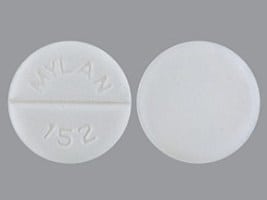
Clonidine is by no means a “magic bullet,” because it doesn’t eliminate all of your opiate withdrawal symptoms.
However, when used correctly clonidine can ease the following opiate withdrawal symptoms:
- Reduces anxiety
- Helps you fall and stay asleep
- Slows down a racing heartbeat which helps to calm you down
- Prevents Restless Leg Syndrome
- Gets rid of the chills and goosebumps
Multiple studies have shown clonidine to significantly help with opiate withdrawal symptoms. Click here to learn more about this highly-beneficial medication that is shown in research to help with opiate withdrawal.
7. Benzos are What Help with Opiate Withdrawal
When I first got on the internet many years ago and asked Google “what helps with opiate withdrawal,” Valium and other benzos came up. Widely regarded as some of the most effective medications for opiate withdrawal, benzodiazepines, commonly referred to as “benzos,” are a class of psychoactive drugs whose core chemical structure is the fusion of a benzene ring and a diazepine ring.
Benzodiazepines enhance the effect of the neurotransmitter GABA at the GABA-A receptor, resulting in effects that can be very helpful at relieving opiate withdrawal symptoms.
Benzodiazepines have the following properties:
- Sedative
- Anxiolytic (Anti-Anxiety)
- Anticonvulsant
- Muscle Relaxant
- Hypnotic (Sleep-Inducing)
The use of benzodiazepines as highly-effective drugs that help with opiate withdrawal has been reported in numerous studies, as well as in anecdotal evidence, especially from individuals that have used the Thomas Recipe for opiate withdrawal.
To learn more about these amazing medicines that help with opiate withdrawal, click on the following links for a complete article on how to use specific benzodiazepine drugs, including Klonopin, Ativan, Librium, Valium, and Xanax.
8. DXM is What Helps with Opiate Withdrawal
When people ask me what helps with opiate withdrawal, I don’t typically mention this because so many things work better. But it really does help with opiate withdrawal. Dextromethorphan (DXM) is an antitussive (cough suppressant) drug found in over 125 over-the-counter cough and cold medications, including Robitussin, Coricidin, and Vicks.
So, how does DXM weigh in on the list of things that help with opiate withdrawal?
It works well.
One of the ways DXM helps to reduce opiate withdrawal symptoms is by increasing certain neurotransmitters in the brain.
DXM increases levels of the following neurotransmitters which can be helpful for opiate withdrawal relief:
- Serotonin
- Dopamine
But even more important than its ability to enhance neurotransmission is DXM’s activity at the NMDA receptors.
A review study from 2004 done in Germany concludes that three main mechanisms are responsible for opioid tolerance and the withdrawal syndrome dependence, which are upregulation of adenyl cyclase and nitric oxide synthetase and activation of NMDA receptors. Consequently, the use of alpha-2 agonists (e.g., clonidine) and NMDA antagonists (e.g., dextromethorphan, ketamine) can minimize the tolerance phenomenon and decrease the withdrawal symptoms.
Simply put, DXM is one of the most effective over-the-counter medications for opiate withdrawal because it’s an NMDA antagonist and because it increases your serotonin and dopamine levels in the brain.
Multiple studies have shown DXM to help with opiate withdrawal. Click here to learn more about this remedy that can certainly be something that helps with opiate withdrawal symptoms relief.
What Helps with Opiate Withdrawal? – Final Thoughts
What helps with opiate withdrawal symptoms? Now you know! If you’re feeling overwhelmed from reading all this information, I don’t blame you. We’ve just covered a lot of things that help with opiate withdrawal and went deep into pharmacology and brain chemistry concepts.
If you’re anything like me, you learn especially well by watching informative video tutorials.
Does that sound like you?
If it does, check this out now…
If you’re interested in learning more about what helps with opiate withdrawal, including medications as well as other withdrawal remedies such as natural drugs, dietary supplements, nootropics, natural remedies, and home remedies, then I encourage you to check out the Ultimate Opiate Recovery System.
In it, you’ll find a 2-hour webinar where I explain in detail how to use over 50 of the top opiate withdrawal remedies in the world.
You’ll also learn exact dosages of medications and other remedies that will be the most beneficial for easing opiate withdrawal symptoms from the comfort of your own home.
Click here now to view the Ultimate Opiate Recovery System.
If you have any comments or questions on what helps with opiate withdrawal, please post them in the comment box below.


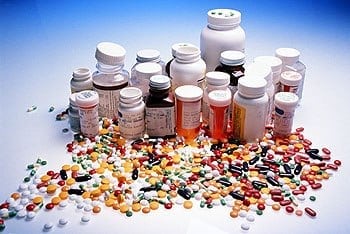
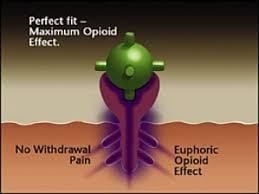
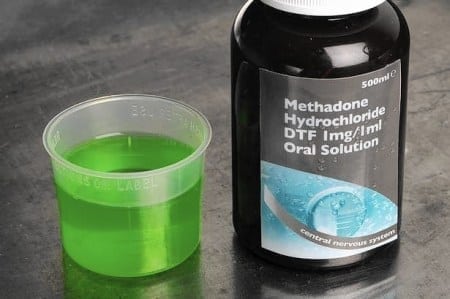


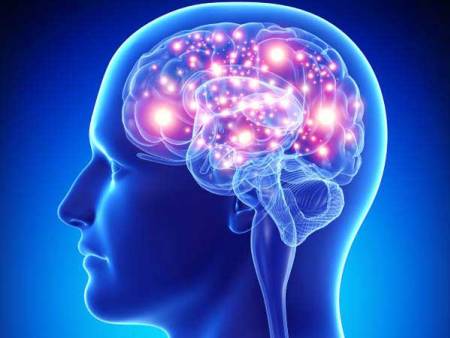
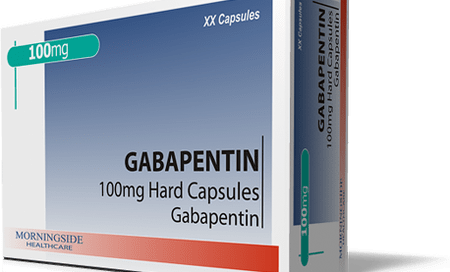

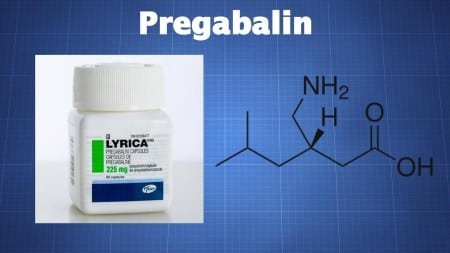
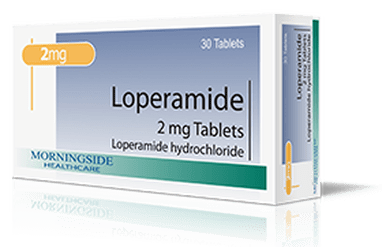


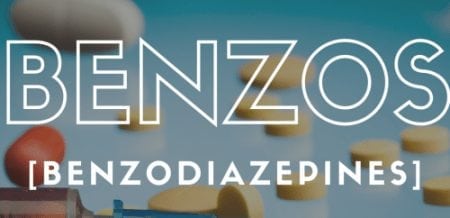



I left a comment that most of these things are acquired by prescription, and if one does not have a
physician who will even prescribe a benzodiazepine, what does one do, and it was rejected saying “it looks like you’ve already asked that question.” That was the first question I asked, and I think it’s important.
It seems most of the things that you mention are prescription drugs. I realize that things like benzodiazepine are very helpful, but if one doesn’t have a doctor who will prescribe it, one is out of luck.